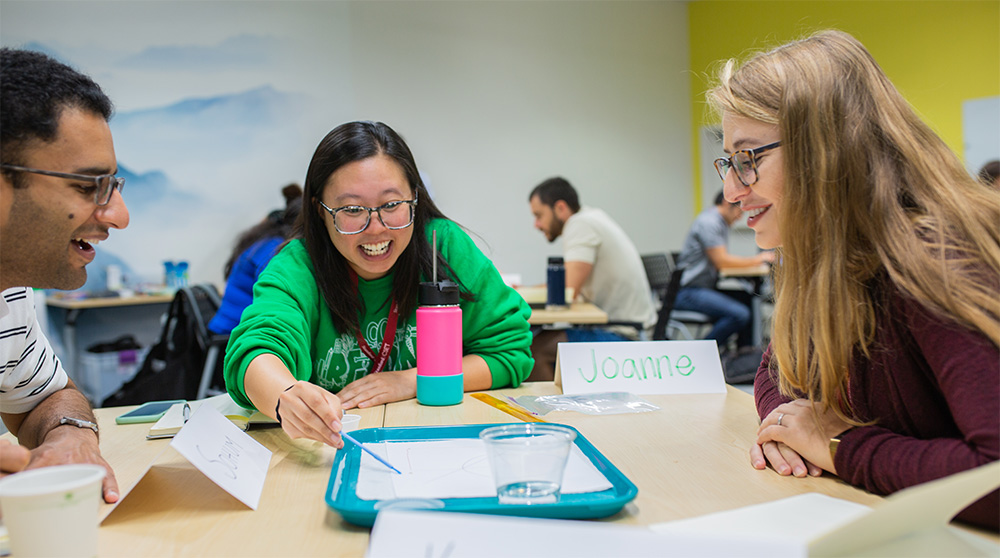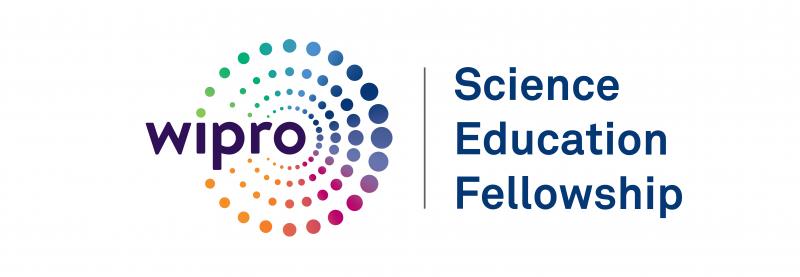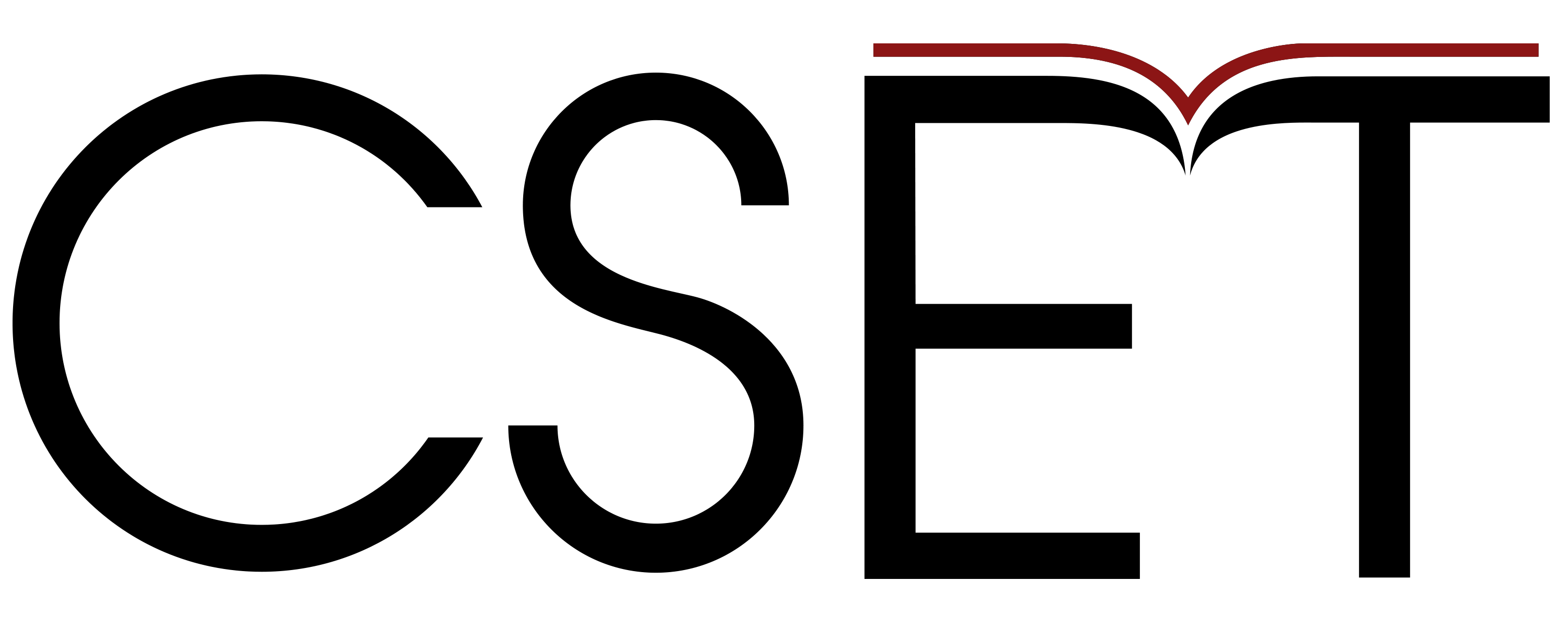The Wipro Fellowship Program

The Wipro Science Education Fellowship (SEF) Program selects teacher leaders from grades K-12 in partnering districts to participate in an intensive professional development program aimed at improving instructional practice, developing leading teachers, and increasing student achievement in the sciences.
Wipro SEF fellows belong to one of our partner school districts:
The Wipro Science Education Fellowship is made possible by a grant from the global information technology company Wipro Ltd. in collaboration with the Center of Science and Mathematics (COSMIC) at the University of Massachusetts Boston. CSET has partnered with these organizations to offer this fellowship opportunity to select districts in the Bay Area.
"Wipro is deeply committed to improving STEM education in public schools and helping educators prepare students for the future," said Anurag Behar, Chief Sustainability Officer, Wipro Limited.
Selected teachers will undergo approximately 250 hours of professional development and mentoring by university teams over the course of two year. Each teacher fellow is expected to teach in their respective schools and districts for the duration of the program and will become a part of the greater Wipro SEF community with other fellows from across the country.
The Wipro Science Education Fellowship (SEF) Program identifies the following three overarching goals:
-
Improve instructional practice
-
Develop leading teacher
-
Increase student achievement in the sciences
To help achieve these goals, the Wipro SEF Program uses three “pillars” that serve as the foundation of the work that fellows will engage in over the course of their two years in the program. These three pillars are described here:
-
Reflective Practice- Fellows meet monthly as a cohort for professional development sessions that address various aspects of science teaching such as effective instructional models, pedagogical content knowledge, Next Generation Science Standards, student engagement, and equity. Teachers also work in small groups, called Collaborative Coaching and Learning in Science (CCLS) groups, to discuss and reflect on classroom practice. Central to the CCLS work, fellows share video recordings of their classroom practice and provide feedback to each other to help each other learn and grow in their individual and collective goals. The CCLS groups make use of protocols, tools, and resources that allow for focused and productive interactions amongst group members.
-
Teacher Leadership- The Wipro SEF Program emphasizes building the leadership capacity of each fellow as they work with other teachers in the program, at their school sites, and in their districts. In year 1, Fellows work collaboratively with colleagues in both vertical and horizontal CCLS groups. Fellows will develop their expertise in their own teaching practice as well as begin conversations with their respective District Coordinators to discuss how their work in the Wipro program can influence science teaching and learning across their district. In year 2, professional development sessions will highlight teacher leadership and fellows will be provided with supports that will help them practice leadership in their own contexts. Fellows will also continue to work with their District Coordinators to further the science work in their respective districts.
-
Adult Learning & Professional Growth- Wipro fellows are encouraged to pursue opportunities for continuous learning and professional growth. In year 1, fellows identify classroom instructional goals and learn how to use educational research to support their everyday classroom practice. In year 2, fellows identify personal goals as well as goals that support district science initiatives and develop a personalized professional growth plan, or Growth Plan System (GPS). To support their GPS, each fellow receives one-on-one mentoring throughout the school year to support them in the development and follow-through of their GPS plan.
-
Whole group professional development sessions
-
Professional collaboration and reflection with other classroom teachers
-
Mentoring sessions focused on individual and school/district goals
-
A stipend per teacher each school year, upon completion of the requirements of the fellowship.
-
A local and national teacher learning community focused on science instruction
-
Opportunities for professional growth in both instruction and leadership
-
Continuing Education Units (CEUs)
Primary Responsibilities of Fellows
-
Teach science in the classroom on a regular basis.
-
Complete all core activities in the Wipro SEF Program.
-
Be reflective, open-minded, committed to the work.
-
Be open to participating in evaluation and research, such as surveys and interviews, during and after your time as a fellow.
Primary Responsibilities of School Administrators
-
Support fellow’s work as it pertains to the Wipro SEF program.
-
Allow fellow’s classroom to be video recorded during the course of the fellowship. These recordings will be used to help teachers reflect on their teaching practice. The expectation is that fellows will video record their classroom while teaching, following district policies as they pertain to video release forms, and parental consent. Videotapes will be viewed by peer teachers as a vehicle for discussion and will not be used to evaluate individual teachers or students.
-
Be open to allowing Wipro fellows to participate in local and national conferences if the opportunity arises. We do not anticipate teachers missing their regular class times, but should the need arise, the Wipro SEF Program will provide funds for any substitutes that may be needed.
-
Permit fellows from within and outside of the district to observe your fellow’s classroom.
-
Provide time for the implementation of your district science curriculum.
-
Suport fellows as they continue to seek leadership opportunities.
Primary Responsibilities of the District Coordinators
-
Recruit eligible teachers to apply for the Wipro SEF program for each of the 3 cohorts.
-
Help with the application process and selection of fellows.
-
Attend monthly meetings with the university team and other District Coordinators from other districts.
-
Meet regularly with Wipro SEF fellows from your district.
-
Be actively engaged in the planning and implementation of the program.
Primary Responsibilities of the Wipro SEF Team at Stanford University
-
Be supportive of all fellows and district personnel involved with the Wipro SEF program.
-
Provide means and support for video recordings.
-
Provide high quality, transformative professional development.
-
Be responsive to fellows’ needs.
-
Assist fellows as they continue to seek leadership opportunities.
-
Provide support and mentorship for individualized professional growth plan.
-
Compensate fellows with their stipends in a timely manner.
-
Provide feedback on fellows’ progress in the program throughout the fellowship.
-
Communicate regularly with partner districts.
September 21 | 9:00 AM - 2:30 PM - Kick-Off Session -- In-Person at Stanford University
October 17 | 4:30 PM - 6:00 PM - Professional Learning Session -- Virtual
November 21 | 4:30 PM - 6:00 PM - Professional Learning Session -- Virtual
December 14 | 9:00 AM - 2:30 PM - Professional Learning Session -- In-Person at Stanford University
January 11 | 9:00 AM - 2:30 PM - Professional Learning Session -- In-Person at Stanford University
February 27 | 4:30 PM - 6:00 PM - Professional Learning Session -- Virtual
March 22 | 9:00 AM - 2:30 PM - Professional Learning Session -- In-Person at Stanford University
April 24 | 4:30 PM - 6:00 PM - Professional Learning Session -- Virtual
May 17 | 9:00 AM - 2:30 PM - Professional Learning Session -- In-Person at Stanford University
June 7 | 9:00 AM - 2:30 PM - End of Year Conference -- In-Person at Stanford University
"I’ve been teaching for close to 20 years, why would I want to learn “more”? I’m a wife, a mother and very close to my extended family. Did I want to make the time for a two year commitment? It took me 4 weeks to decide… Yes. The Next Generation Science Standards were newly imposed. I had volunteered to pilot the new science curriculums. I needed to have a deeper understanding of the NGSS, not just for me but for my students! I wanted to make sure that my students had an engaging, educational experience in science.
The Wipro Fellowship has meant “more” to me than I ever imagined. We meet as a group once or twice a month and every meeting is valuable. We’ve learned about such things as: 5E Lessons, CER’s, equity, different types of student discussions, and “Teacher Talk Moves”. The V-CCLS videotaping experience has been relevant and surprisingly enjoyable. Our group’s focus was “the importance of having students generate questions”. In the first video share I walked away with a strategy that I used the next day in my classroom and continue to use to this day.
Incredibly, my favorite part of participating in the Wipro Fellowship is the opportunity to spend time with the wonderful people who want to be there, having authentic discussions with them and sharing the same goal of being as committed to improving themselves for their students as I am. The support from the Wipro organization has been tremendous, making my experience in the program even more rewarding and enjoyable."
- Michelle Sutton, Wipro Cohort 1 Fellow
"After teaching for 5 years, I found myself running into the same issues. Teaching is hard and even though you are surrounded by students, the job itself can be lonely. In an attempt to meet other educators, I joined the Wipro program in the fall of 2019.
My experiences in Wipro have been a breath of fresh air! The program structure has shown me what productive professional development looks like. The VCCLS collaboration was so enlightening - never had I had the chance to think about scientific concepts as a through line from elementary to middle to high school. We focused on applications of energy transfer in the physical and life sciences and while it was neat to explore this theme in different contexts, the parallel focus on equity of voice in the classroom underscored our work. Getting time to access research articles that discuss best practices and methods to teach science in equitable ways informed our group’s plan and we all grappled with unique teaching methods to increase equity of voice in our own classrooms. The constant reflection and structured conversation built into our workflow really allowed us to dig deep and learn from each other. I remember walking away from our first group conversation feeling excited and refreshed to be a part of a group of thoughtful, empathetic and self-driven educators.
The end of semester conference was another unique learning opportunity for me as I watched other VCCLS groups present their work. At the end of the conference I felt that Wipro had raised the bar for teacher development. Other career paths (whether it be in medicine, law, or engineering) make use of large conferences as platforms for collaboration and used research to inform their practice. It felt appropriate to give teachers the opportunity to do the same.
I appreciate Wipro and their stance on education because they allow time and space for teachers to improve their practice in a judgement free space. Teaching is personal and our Wipro facilitators have normalized a space where we can be vulnerable without feeling evaluated. My first year has been interrupted by COVID-19, but I’m so excited to continue on with our HCCLS experience when time allows. Like I said before, teaching can be lonely, and I’m excited to get back to my community of fellow educators so we can continue to work!"
- Sohum Bhatt, Wipro Cohort 2 Fellow
Sohum Bhatt - Cohort 2
While participating in the Wipro Science Education Fellowship, Sohum was also part of the New York Times Teaching Project with two other teachers from across the U.S.A. He introduced them to his Wipro GPS project on Climate Change and together, they created a curriculum project that was published in the New York Times. Here is the link to the piece: "Interpreting Data to Understand Community Opinions on Climate Change" (November, 10, 2021). Congratulations!
Chelsea Alvarez and Julie McKinley Reed - Cohort 3
Chelsea and Julie were honored as recipients of the Civics and Arts Leadership Awards in 2022. This award honors educators "who are inspiring students to take an active role in civic engagement, those that spark joy in the arts, and pursue innovation in STEM". Congratulations!
Wipro SEF Program Press Release

For more information on Wipro and the development of the Science Education Fellowship Program, please see this press release.
